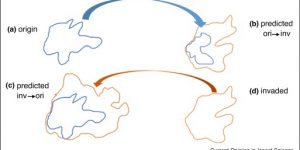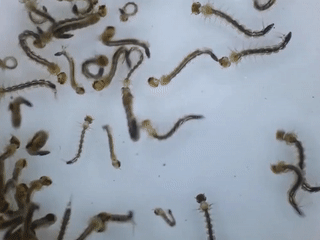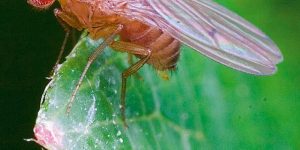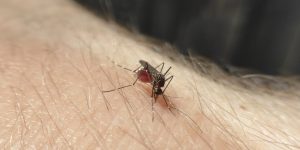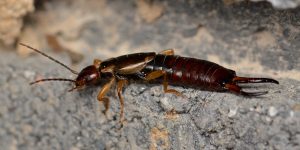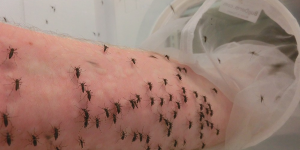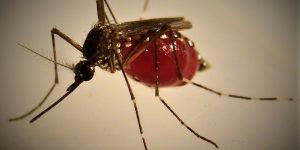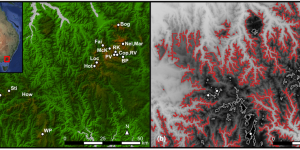Category: Research
-
Ambiguous literature | kdr triple resistance mutation – Where has it really been found?
Editors note: This article is direct from our internal research diary Words: Nancy M. Endersby-Harshman The purpose of this article is to recommend very careful reading and analysis of the literature relating to sodium channel mutations in Aedes aegypti and equal care in writing about them. I have uncovered some confusion in the mosquito literature […] -
Rapid evolution in insect pest species
Off the back of a review Ary wrote last year in Current Opinion in Insect Science, a less technical and more digestible summary is now available (sans pay-wall) at Science Trends. A Quote from the Science Trends article to grab your interest: Evolutionary changes often occur when pest species invade new areas where they have […]blogs.unimelb.edu.au/pearg/2018/04/30/rapid-evolution-in-insect-pest-species
-
Collecting fresh mosquitoes | PEARG in the field
Words: Tom Schmidt Photos: Tom Schmidt and Perran Ross At PEARG, we have a great interest in environmental pests and how to deal with them. One of these pests is the mosquito Aedes aegypti, which causes catastrophic damage throughout the world’s tropical zone. Aedes aegypti spreads viruses such as dengue, Zika and chikungunya, and is […]blogs.unimelb.edu.au/pearg/2018/04/30/collecting-fresh-mosquitoes-pearg-in-the-field
-
The Wolbachia pandemic | Symbionts spread rapidly across highly diverged flies
Words: Perran Ross Cover photo: Andrew Weeks Wolbachia are perhaps the most prevalent bacterial symbionts on earth. Of the millions of insect species, Wolbachia are estimated to infect up to half of them. These bacteria are renowned for the effects they exert on their hosts, which can often be quite dramatic. Some Wolbachia strains are […] -
WOLBACHIA BACTERIA IN ACTION | How we’re using naturally occurring bacteria to stop mosquitoes from spreading disease
Words and images: Perran Ross Cover photo: Jason Axford Dengue is a major global health issue. It infects millions of people every year and can cause debilitating illness, inflicting joint pain, rash and fever. Without any effective vaccine, the best way to prevent dengue is to target the mosquitoes that transmit it. Dengue is spread […] -
New review | The detection and significance of emerging insecticide resistance in mosquitoes
Nancy, Andrew and Ary have a fresh review article in CSIRO’s ‘Microbiology Australia’ journal. Below is the abstract, for the full text please follow this link. Mosquito-borne arboviruses are increasing in incidence around the world. Australia enjoys some protection from pests and diseases afforded by its geographic isolation coupled with strict biosecurity control at its […] -
What’s in a (species) name? Using genetics to map the hidden diversity of earwigs
Written by Oliver Stuart, Image credit: Ryan Hodnett [CC BY-SA 4.0 (https://creativecommons.org/licenses/by-sa/4.0)], from Wikimedia Commons There are a lot of different insects; this cannot be overstated. Of the roughly 2 million animal species (that we know of), insects make up well over half. This mega-diversity has been a source of delight for biologists for centuries, […] -
Study Shows Rapid Evolution in Lab-Reared Insects | Perran and Ary’s new paper covered in Entomology Today
Perran and Ary’s lab adaptation review paper is fresh off the press and immediately generating interest. Follow the link below to Entomology Today to read all about it. Study Shows Rapid Evolution in Lab-Reared Insects -
Picky feeders: Mosquitoes turn their nose up at non-human blood
Words: Ellen Cottingham Image: Perran Ross Most Australians have sat outside on a summers evening only to return inside to find their legs and arms dotted with fresh itchy mozzie bites. It is not widely known that only female mosquitoes bite warm blooded animals or humans. The reason for this is that females use protein […]blogs.unimelb.edu.au/pearg/2018/02/23/picky-feeders-mosquitoes-turn-their-nose-up-at-non-human-blood
-
Fresh publications!
Climate contributes to the evolution of pesticide resistance | James Maino, Paul Umina, Ary Hoffmann Abstract The evolution of pesticide resistance through space and time is of great economic significance to modern agricultural production systems, and consequently, is often well documented. It can thus be used to dissect the evolutionary and ecological processes […]
Number of posts found: 71
